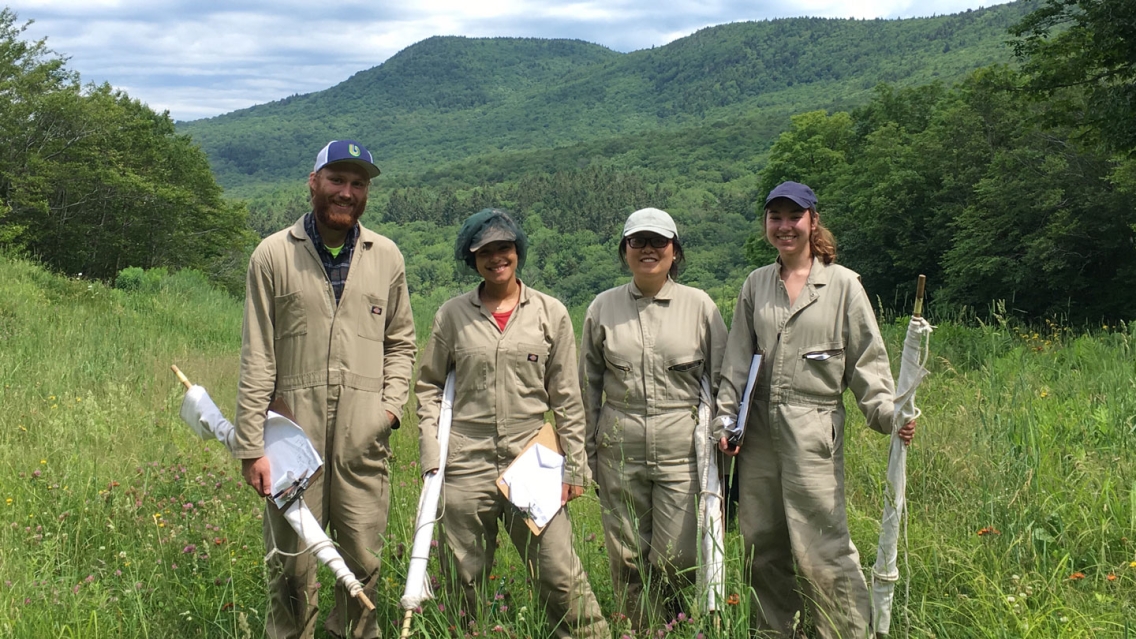Student and Faculty Research
Most faculty members in the Biology Department have research programs that include undergraduate research assistants.

How to Get Involved
-
Research for course credit
You can enroll in Biology 0500, 0700, or 0701 to do independent, though directed, research with a faculty member for credit. You will work with that faculty member to design a project that either fits into their larger research program, or, rarely, is entirely designed by you independent of that research. If you are interested, please email a potential faculty research advisor midway through the semester before you want to do research. This will start a discussion of whether the faculty member has space in their lab and, if so, what your project would be. This research project can continue for multiple semesters and optionally ends in a thesis. You should expect this to carry approximately the same time commitment as any other one-credit course at Middlebury. This averages around 10 hours per week, but some weeks will have more of a time commitment. More information about a research class for credit, including deadlines, applying for funding, and how the credit will count towards your major, can be found here. -
Paid research assistantship during the academic year
Some faculty members have funding for paid assistantships during the academic year. Typically you will have less autonomy over the project than if you did the research for credit. You can email faculty members to see whether they currently have open positions. Depending on the assistantship, the hours will usually vary between 2 to 10 hours a week. -
Paid research assistantships during the summer
Some faculty members have research assistantships available during the summer. These are typically 8- to 10-week positions, with expectations that the student works approximately 40 hours per week. Each faculty member has their own way of hiring for these positions. Again, you will typically have less autonomy over the project than if you did research for credit. Contact faculty members early in the spring semester if you are interested. -
Volunteer lab work during the academic year
Some faculty take on students to conduct volunteer work in the lab. Reach out to a faculty member the semester prior to your interest in starting in the lab to see if this may be an option. These types of positions are often more limited in terms of hours per week.
Research Labs
Below are biology faculty members with research labs and a brief description of their research. Contact the listed faculty member for more information.
- David Allen: Ecology of ticks and tick-borne diseases
- Sam Byrne: Environmental health and environmental justice
- Catherine Combelles: Reproductive biology
- Kirsten Coe: Plant ecophysiology
- Erin Eggleston: Molecular microbial ecology
- Eric Moody: Aquatic ecology
- Alexis Mychajliw: Vertebrate conservation, evolution, and extinction through time
- Greg Pask: Neurobiology and behavior of insect smell
- Emily Putnam: Microbial genetics and food microbiomes
- Grace Spatafora: Microbial molecular genetics
- Erik Solhaug: Molecular/metabolic basis of floral nectar
- Mark Spritzer: Behavioral neuroendocrinology
- Andrew Swafford: Evolutionary Cell Biology
- Jeremy Ward: Coral genetics and tick-borne pathogens
